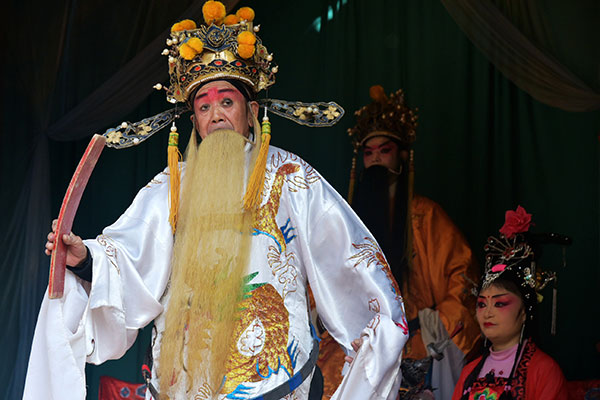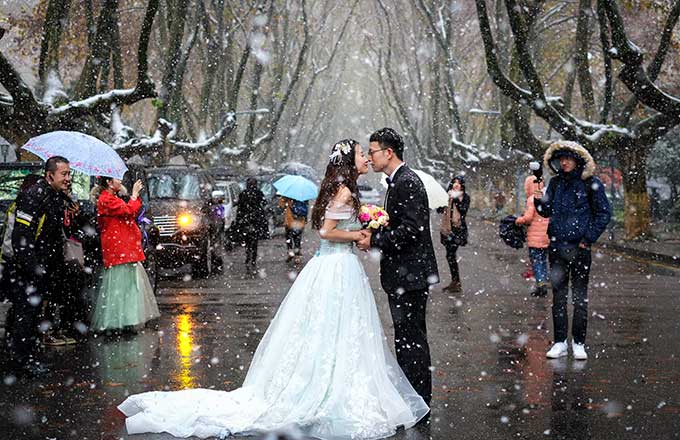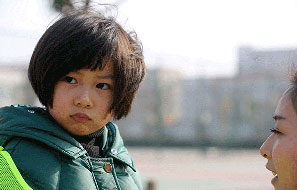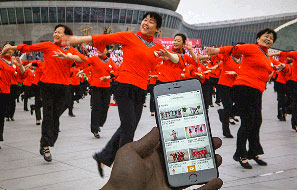Chinese rural opera has fewer fans
 |
|
The Jinyuan Opera Company performing at a temple in White Horse town in Daying, southwestern China's Sichuan province on Nov 19. AFP |
When he dons his flowing robes and vivid makeup, Wu Yunhong is transformed from a laborer who toils on mountains under a beating sun into an evil general commanding an army of warriors.
Wu was raised in the Jinyuan Opera Company, co-founded by his grandfather in 1984. He started performing when he was only 8 years old and is the third generation to carry on the tradition - but may be the last.
With crowds aging and not too many shows to perform, the Sichuan-style opera staged around the municipality of Chongqing in Southwest China, is threatened with extinction - even as other traditional art forms flourish in the country.
Some Chinese opera styles such as Peking and Canton have been elevated to "national treasure" status by the government, winning millions in funding, but some others are fading away.
"Sometimes the only young people at the performances are my wife and children when they travel with us," said Wu, 26.
Between shows, he and his fellow actors must tend to their fields, growing corn and rice in a mountainous area where temperatures can easily reach 42 C in the summer.
"All of our fees come from the farmers who pool their money together for a show," said troupe member Lyu Guiying. "We make a little extra money performing, but we can never get rich performing."
Peking Opera was popularized in the Qing Dynasty (1644-1911). The opera had royal support and spread because it was sung in a language widely understood in China, while some regional varieties such as Cantonese, Shanghainese and Sichuanese opera stuck to their own dialects and songs.
The government remained keen on Peking Opera after New China was founded in 1949, and the central government urged provinces to form their own Peking Opera troupes.
During the "cultural revolution" (1966-76), only eight "model plays" were allowed. It took until the 1980s for private theater companies to start forming again. They flourished for a short time, but have since had to compete with new forms of entertainment that came up with China's economic boom.
But without official support, niche styles are disappearing. "In the 1960s there were more than 300 varieties of Chinese opera, today there are about 200,"
Ruru Li, a professor of Chinese theater studies at the University of Leeds, said. "In 10 years time, maybe there will only be 100 varieties left."
Those who still perform them have had to contend with shrinking audiences and a lack of new fans, as many young people shun farming and leave China's countryside to look for better-paying jobs in the cities.
"I don't want my son to grow up learning opera like I did, he needs to go to school. Hopefully he can go to university," said Wu.

























